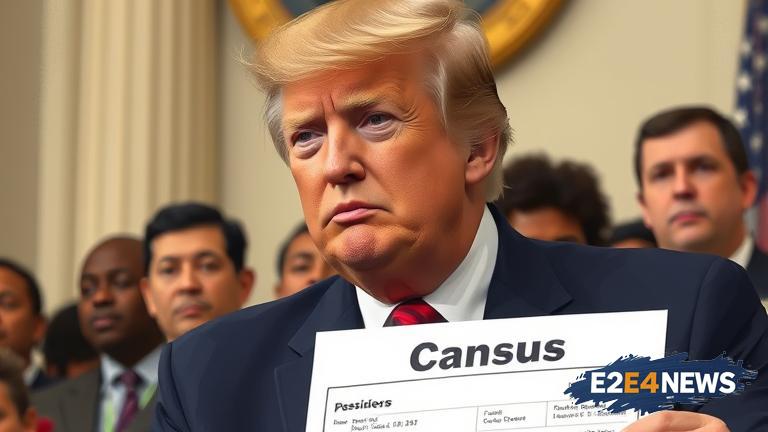The Trump administration is preparing to take a major step in its efforts to reshape the US census, with a potential move to exclude noncitizens from the population count. This decision, if implemented, could have far-reaching consequences for the allocation of congressional seats and federal funding. The US Constitution mandates that the census be conducted every 10 years to determine the number of representatives each state is entitled to in the House of Representatives. The census also plays a critical role in determining the distribution of federal funds to states and localities. The Trump administration has argued that including noncitizens in the census count unfairly benefits states with large immigrant populations, such as California and New York. By excluding noncitizens, the administration hopes to shift the balance of power in Congress and the Electoral College. However, critics argue that such a move would be unconstitutional and would undermine the accuracy of the census. The US Supreme Court has previously ruled that the census must count all persons, regardless of their citizenship status. Despite this, the Trump administration is reportedly exploring ways to implement the change, potentially through an executive order or a regulatory change. The move is likely to face significant opposition from Democrats and civil rights groups, who argue that it would disproportionately harm minority communities. The American Community Survey, which is conducted by the US Census Bureau, already asks respondents about their citizenship status, but the results are not used to determine the official population count. The Trump administration’s efforts to add a citizenship question to the 2020 census were ultimately blocked by the Supreme Court. The administration’s latest move is seen as an attempt to achieve its goals through alternative means. The potential consequences of excluding noncitizens from the census are significant, with some estimates suggesting that it could result in a loss of congressional seats and federal funding for states with large immigrant populations. The move is also likely to face challenges in the courts, with many experts predicting that it would be struck down as unconstitutional. As the debate over the census continues, it remains to be seen whether the Trump administration will be successful in its efforts to exclude noncitizens from the population count. The outcome is likely to have significant implications for the balance of power in Washington and the distribution of federal resources. The US Census Bureau has a long history of counting all persons, regardless of their citizenship status, and any attempt to change this practice is likely to be met with significant resistance. The Trump administration’s efforts to reshape the census are part of a broader pattern of efforts to restrict immigration and limit the rights of noncitizens. The move is likely to be seen as a major test of the administration’s ability to implement its policies in the face of opposition from Democrats and civil rights groups.
